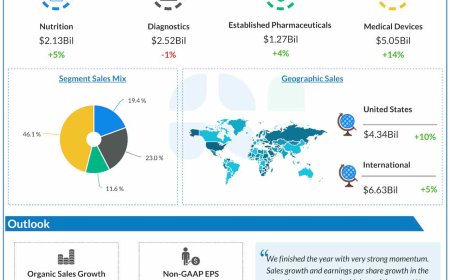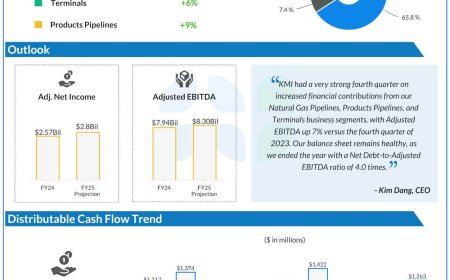10 Influential Leaders Who Changed the World
History is full of movers who take their society to the breaking point and give something new to the world. Though most historical persons are registered in history books, some other low-key leaders with vision and persistence make all the difference. The article will narrate ten of the change-making influential leaders who changed the world, […] The post 10 Influential Leaders Who Changed the World appeared first on Insights Success.

History is full of movers who take their society to the breaking point and give something new to the world. Though most historical persons are registered in history books, some other low-key leaders with vision and persistence make all the difference.
The article will narrate ten of the change-making influential leaders who changed the world, what they did, and the impact that lives after them.
- Wangari Maathai
Wangari Maathai was the first African woman to win the Nobel Peace Prize back in 2004. Through an organization she set up, specifically focused on tree planting and care, environmental conservation, and women’s empowerment, she held the belief that issues relating to the environment were somehow associated with social justice.
Her work gave birth to millions of trees in Kenya and a buzz in every nook of the earth in pursuit of sustainable development. Work undertaken by Maathai inspired the public at a time to fight for the conservation of environmental resources.
- Aung San Suu Kyi
Aung San Suu Kyi is the most prominent icon in democracy history across the border of Myanmar who has strived for decades to protest tyranny and led the fight to maintain humanity. She was the leader of the National League for Democracy, placed under house arrest almost for 15 years.
Despite all these, she was an icon of hope for many. She inspired an entire generation of activists not only in Myanmar but all over the world by her resolute struggle and unshaking commitment to democracy. And despite the controversies that trailed later in political life, it inspires works on democracy and human rights.
- Gro Harlem Brundtland
Gro Harlem Brundtland is dubbed as the “mother of sustainability.” Gro Harlem Brundtland is a Norwegian politician and former Prime Minister of Norway. She headed the World Commission on Environment and Development, which, in 1987, produced a report called “Our Common Future.”
That report popularized the term “sustainable development,” whereby that said report indicated that economic growth should be made hand in hand with environmental protection. The information Brundtland provided have shaped the policies of the world and its debates over sustainability and climate change. They have, therefore, altered the way leaders view these issues.
- Ellen Johnson Sirleaf
Ellen Johnson Sirleaf was the first elected woman head of state in Africa, after her election as Liberia’s President in 2006. She took over the office when Liberia was coming to terms with the gruesome civil war. She has highly worked on rebuilding the country, making peace, and empowering the women.
She is one of those leaders who, within their tenure, could create some positive change in the education and health sectors alongside doing their best to end corruption. In 2011, she was awarded the Nobel Peace Prize for her efforts in peace and advocacy in women’s empowerment. She remains the symbol of inclusive leadership until today.
- Muhammad Yunus
Muhammad Yunus is the Bangladeshi social entrepreneur who, basically famous for pioneering work in microfinance and microcredit, started lending without any collateral through Grameen Bank during the 1980s. The Yunus model empowers women through micro enterprises formed to improve them in the economic sector, allowing millions to leave the grip of poverty and inspiring a global microfinance movement. Yunus, through Grameen Bank, won the Nobel Peace Prize in 2006 for innovative approaches toward poverty management.
- Marie Curie
She was the most visionary scientist in the research line dealing with radioactivity. The first woman who acquired Nobel Prize, at one moment, and that the one who acquired two of completely different categories of science – namely: Physics and Chemistry; some fantastic discoveries which gave enough contribution to develop things towards more improvement in the two scientific fields: medical treatment as well as nuclear physics.
The discovery of Curie not only enhanced scientific knowledge but inspired many women to enter the science and engineering lines so that a future trend was opened for the generations of young ladies breaking all boundaries as they continue marching through these previously male-identified industries.
- Desmond Tutu
Desmond Tutu is the Anglican bishop of South Africa and also an anti-apartheid activist. It was because of his moral leadership and his stance on non-violence that the injustices in South Africa attracted attention from across the world. His effort at reconciliation after the post-apartheid regime prompted him to chair the Truth and Reconciliation Commission. He has become an internationally renowned peace and human rights activist and a symbol of a long fight for justice and equality.
- Václav Havel
He was a Czech playwright, dissident, and politician who came out as the first President of the newly independent Czech Republic when communism fell. As such, he became one of the most prominent voices for democracy and human rights in the Soviet bloc through his writing and activism against totalitarianism. He highlights civil society and an individual’s notion of responsibility in a democratic setting. The legacy of Havel teaches that it is all the might of peaceful resistance, and arts and literature have the power to impact political change.
- Malala Yousafzai
International news made fearless girl-education activist Malala Yousafzai when she survived an assassination attempt at 15 years of age from the Taliban. With tenacious spirit, she moved forward for girls’ education in her native Pakistan with severe danger, becoming the hallmark of strength and courage to humanity across the world.
She has co-authored her autobiography with the author of “I Am Malala,” through which millions rose up to fight for their rights. She was made a Nobel Peace Prize laureate in 2014 and became an education reform leader.
- Nelson Mandela
Though widely known, Nelson Mandela’s distinct approach to leadership and reconciliation is often overlooked. Having spent 27 years in prison for his anti-apartheid activism, Mandela emerged as a leader who sought forgiveness and unity for a divided nation. He emphasized the importance of dialogue and reconciliation over retribution. His presidency was a turning point in South Africa’s history since he worked hard towards dismantling apartheid and setting up a multiracial democracy. Mandela’s legacy is inspiring leaders around the world to prioritize peace, justice, and equality.
Conclusion
The personalities featured above have all done very important work in their respective fields as well as for the world. Examples of courage, vision, and determination abound in how they changed people’s lives. They may not be household names, but the influence runs through the changes they were champions of.
The lessons of their lives talk about the power of individual action and fighting for justice, equality, and the environment. The legacies of the great leaders will continue to inspire generations coming after them to strive toward a better and more balanced world as the world moves forward through the problems.
The post 10 Influential Leaders Who Changed the World appeared first on Insights Success.











































